Navigating Emotional Intensity

What is BPD with Bipolar Disorder?
Borderline Personality Disorder (BPD) and Bipolar Disorder are distinct conditions that can co-occur in some individuals. Studies suggest that up to 20% of individuals with BPD also meet criteria for Bipolar Disorder. When someone has both BPD and Bipolar Disorder, it creates a unique psychological profile that we’ll refer to as BPD-Bipolar.
The Diagnostic Evolution of BPD-Bipolar
Historically, the intense mood swings seen in BPD were often confused with the manic and depressive episodes of Bipolar Disorder, leading to potential misdiagnosis or incomplete treatment. Recent advancements in understanding emotional dysregulation have led to more nuanced diagnostic approaches, recognizing that these conditions can coexist and interact.
The Neurological Complexity of BPD-Bipolar
Brain imaging studies have shown that both BPD and Bipolar Disorder involve alterations in the limbic system and prefrontal cortex, affecting emotional regulation and impulse control. In BPD-Bipolar, these neurological differences interact in complex ways, creating a unique emotional landscape.
The Push-Pull of Overlapping Symptoms
Living with BPD-Bipolar often involves navigating intense and sometimes contradictory emotional experiences:
- BPD can cause rapid mood shifts in response to interpersonal triggers, while Bipolar Disorder involves longer-lasting mood episodes
- Both conditions can lead to impulsivity and risk-taking behaviors
- Fears of abandonment in BPD may be amplified during depressive episodes of Bipolar Disorder
These overlapping traits can result in:
- Difficulty in maintaining stable relationships due to intense emotional reactions and mood swings
- Challenges in distinguishing between BPD-related emotional intensity and Bipolar mood episodes
- Increased risk of self-harm and suicidal behaviors
Gender Differences in Presentation
BPD-Bipolar can manifest differently across genders:
- Women may be more likely to receive a BPD diagnosis, while men might be more often diagnosed with Bipolar Disorder
- Cultural factors can influence how emotional intensity is expressed and perceived
- Hormonal fluctuations can impact symptom presentation in both conditions
Rethinking Treatment for BPD-Bipolar
Managing BPD-Bipolar requires a comprehensive approach that addresses both emotional dysregulation and mood stability. Innovative treatments showing promise include:
- Somatic Experiencing (SE): This body-oriented approach can help individuals with BPD-Bipolar regulate their nervous system and develop greater emotional stability. SE techniques can be particularly effective in addressing the physiological aspects of intense emotions.
- Lifespan Integration (LI): LI can help individuals with BPD-Bipolar create a more coherent sense of self across time, integrating past experiences and improving overall functioning. This gentle approach can be especially beneficial for those with complex trauma histories often seen in BPD.
- Brainspotting: This therapy can be effective in addressing both trauma-related neural patterns common in BPD and the mood dysregulation seen in Bipolar Disorder. By focusing on specific eye positions, brainspotting can help process emotional intensity and improve mood stability.
- qEEG Brain Mapping: This non-invasive assessment tool can provide valuable insights into the specific brain activity patterns of individuals with BPD-Bipolar. The resulting data can guide personalized treatment plans, including neurofeedback interventions to address emotional dysregulation and mood instability.
These approaches, combined with traditional interventions like Dialectical Behavior Therapy (DBT) for BPD and mood stabilizers for Bipolar Disorder, can provide a comprehensive treatment plan for BPD-Bipolar.
The Strengths of a BPD-Bipolar Mind
While challenging, this psychological combination can also confer unique strengths:
- Intense creativity and passion, particularly during periods of emotional or mood elevation
- Deep empathy and emotional intuition
- Ability to form profound connections with others
- Resilience developed from navigating complex emotional experiences
Embracing the BPD-Bipolar Experience
Understanding BPD-Bipolar as a distinct profile is crucial for proper support and self-acceptance. It requires appreciating the complex interplay between emotional intensity and mood cycles, rather than viewing them as entirely separate issues.
For those living with BPD-Bipolar, developing personalized coping strategies is key. This might involve:
- Practicing mindfulness techniques to increase emotional awareness and regulation
- Building a strong support network that understands both BPD and Bipolar Disorder
- Engaging in regular self-care activities to help stabilize mood and emotions
- Learning to distinguish between BPD-related emotional reactions and Bipolar mood episodes
With the right combination of professional support, self-management strategies, and self-compassion, individuals with BPD-Bipolar can lead fulfilling lives that honor the complexity of their emotional experiences.
If you relate to the experiences described in this article, consider seeking an assessment from a mental health professional experienced in both BPD and Bipolar Disorder. Remember that your experiences are valid, and support is available to help you navigate this unique psychological profile.
Resources to ADHD Comorbid with Other Disorders
Taproot Therapy Collective (Birmingham, AL)
- Treatments: Brainspotting, EMDR, Somatic Experiencing, Lifespan Integration, Parts-Based Therapy, Trauma Mapping.
- Specialties: Specializes in trauma therapy, PTSD, anxiety, panic, and dissociative disorders. Their therapists use integrative methods to help clients heal from trauma at a deep, somatic level.
- Website: gettherapybirmingham.com
1. Crisis Center Birmingham (24/7 Crisis Line)
- Phone: (205) 323-7777
Provides immediate support for individuals in emotional distress, including suicide prevention, trauma, and mental health crises. - Website: crisiscenterbham.org
2. Rape Response Line (Crisis Center Birmingham)
- Phone: (205) 323-7273
Dedicated to providing support for survivors of sexual assault, available 24/7. - Website: crisiscenterbham.org/rape-response
3. Teen Link (Crisis Center Birmingham)
- Phone: (205) 328-5465
Teen-specific support line for youth in emotional or mental distress. - Website: crisiscenterbham.org
4. National Suicide Prevention Lifeline (Serving Alabama)
- Phone: 988
A national 24/7 suicide prevention hotline accessible to individuals in Birmingham and the rest of Alabama. - Website: 988lifeline.org
5. UAB Psychiatry Emergency Services
- Phone: (205) 934-7008
Provides immediate psychiatric evaluation and crisis intervention at the University of Alabama at Birmingham Hospital. - Website: uabmedicine.org
6. Alabama Domestic Violence Hotline
- Phone: 1-800-650-6522
24/7 support for individuals experiencing domestic violence, available statewide, including Birmingham. - Website: acadv.org
7. Birmingham AIDS Outreach Crisis Line
- Phone: (205) 322-4197
Provides crisis support for individuals affected by HIV/AIDS, including mental health services and support for LGBTQ+ communities. - Website: birminghamaidsoutreach.org
8. Alabama 2-1-1 Call Center
- Phone: 2-1-1
A statewide information and referral line connecting individuals to crisis support services for housing, food, mental health, and substance abuse issues. - Website: 211connectsalabama.org
9. Jefferson County Family Resource Center Crisis Line
- Phone: (205) 945-6000
Provides crisis intervention, including family support, domestic violence resources, and mental health services. - Website: jcfrc.org
10. Veterans Crisis Line (Serving Birmingham)
- Phone: 988 (Press 1)
A specialized crisis line for veterans experiencing emotional distress, available nationwide and locally. - Website: veteranscrisisline.net
- Phone: (205) 323-7777
LGBTQ+ and Poly-Friendly Support
Magic City Acceptance Center (MCAC)
LGBTQ+ youth programs, adult support groups, and community events in Birmingham.
Website: mcacbham.org
Birmingham LGBTQ+ Circle of Healing
Support groups for LGBTQ+ individuals focusing on mental health and holistic wellness.
Contact through Magic City Acceptance Center.
Inclusive Therapists
Directory of therapists in Birmingham and Hoover specializing in LGBTQ+ and poly-friendly care.
Website: inclusivetherapists.com
PFLAG Birmingham
LGBTQ+ support groups for families and friends of LGBTQ+ individuals, offering mental health and advocacy resources.
Website: pflaga.org/birmingham
Steel City Spectrum
Provides support and resources for the transgender and gender-nonconforming communities in Birmingham.
Website: steelcityspectrum.org
Free & Low-Cost Therapy and Counseling
Impact Family Counseling (Birmingham, AL)
Provides sliding-scale counseling services for trauma, anxiety, depression, and family therapy.
Website: impactal.org
Firehouse Shelter (Birmingham, AL)
Offers mental health services and crisis support for homeless individuals in the Birmingham area.
Website: firehouseshelter.com
Pathways Birmingham
Women’s shelter offering mental health and trauma support for homeless women and children.
Website: pathwayshome.org
United Way of Central Alabama
Offers access to free or low-cost mental health counseling and crisis intervention through partnerships.
Website: uwca.org
BridgeWays Alabama
Offers family and youth counseling, including trauma recovery, on a sliding fee scale.
Website: bridgewaysalabama.org
Holistic & Alternative Therapy Centers
Taproot Therapy Collective (Birmingham, AL)
Offers holistic mental health services like Brainspotting, EMDR, and somatic trauma therapies.
Website: gettherapybirmingham.com
Birmingham Wellness Institute
Focuses on alternative healing practices such as yoga therapy, mindfulness, and EMDR.
Website: bhamwellness.com
Sojourn Counseling (Hoover, AL)
Provides integrative counseling with a focus on EMDR, trauma work, and mindfulness.
Website: sojourncounseling.com
Red Mountain Therapeutics (Birmingham, AL)
Offers somatic therapies, acupuncture, and integrative emotional healing for trauma recovery.
Website: redmountaintherapeutics.com
Shanti Healing Arts Center (Birmingham, AL)
Focuses on trauma-sensitive yoga, meditation, and holistic therapies for emotional and mental health.
Website: shantihealingarts.com
Lifespan Integration & Trauma Mapping
Birmingham Counseling Associates
Provides Lifespan Integration therapy for complex trauma and PTSD.
Website: bhamcounseling.com
Lifeline Counseling (Hoover, AL)
Trauma-informed care specializing in Lifespan Integration and Somatic Trauma Mapping.
Website: lifelinehoover.com
River Oaks Counseling
Offers Lifespan Integration and other trauma-focused therapies for PTSD and dissociation.
Website: riveroakscounseling.com
Emotional Wellness Counseling
Provides Lifespan Integration therapy and somatic trauma work.
Website: emotionalwellnesshoover.com
qEEG Brainmapping and Neurofeedback Resources
Focus-MD Birmingham
Specializes in ADHD treatment and qEEG brain mapping for neurodevelopmental disorders.
Website: focus-md.com
Birmingham Neurofeedback Clinic
Provides qEEG brain mapping and neurofeedback for trauma, anxiety, and ADHD.
Website: birminghamneurofeedback.com
Alabama Neurofeedback
Offers qEEG brain mapping and neurofeedback to improve brain function and emotional regulation.
Website: alneurofeedback.com
Covenant Neuropsychology
qEEG brain mapping services for trauma-related symptoms and neurological issues.
Website: covenantneuro.com
Psych Wellness South (Hoover, AL)
qEEG and neurofeedback services to treat anxiety, ADHD, and trauma.
Website: psychwellnesssouth.com
Poly-Friendly & Non-Monogamy Support
Inclusive Therapists
Directory for poly-friendly and non-monogamy affirming therapists in the Birmingham and Hoover areas.
Website: inclusivetherapists.com
Birmingham LGBTQ Circle of Healing
Offers support for polyamorous and non-monogamous relationships.
Contact through Magic City Acceptance Center.
Alabama Polyamory Network
A supportive community providing mental health resources for polyamorous individuals.
Contact via Meetup: meetup.com/polybirmingham
New Hope Counseling
Poly-friendly therapy services, offering support for non-traditional relationships.
Website: newhopecounselingbham.com
Open Counseling Birmingham
Provides mental health counseling for those in polyamorous or open relationships.
Website: opencounseling.com
Youth & Family Services
Oasis Counseling for Women and Children
Provides trauma therapy, parenting support, and family counseling.
Website: oasiscounseling.org
Children’s Aid Society of Alabama (Birmingham)
Family and individual counseling, including trauma services for children.
Website: childrensaid.org
Aletheia House
Mental health and substance abuse services for families, including trauma recovery programs.
Website: aletheiahouse.org
Big Brothers Big Sisters of Greater Birmingham
Offers mentorship and emotional support for at-risk youth.
Website: bbbsbhm.org
The Exceptional Foundation
Provides support for children and adults with special needs, including mental health resources.
Website: exceptionalfoundation.org

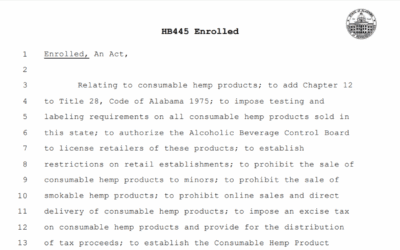
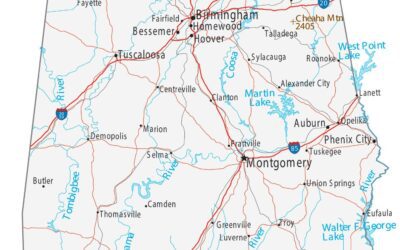
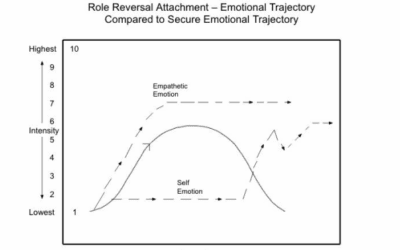













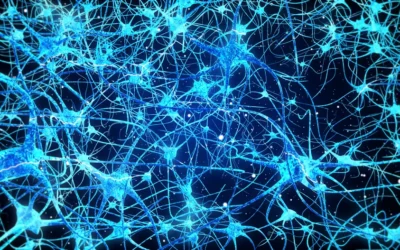




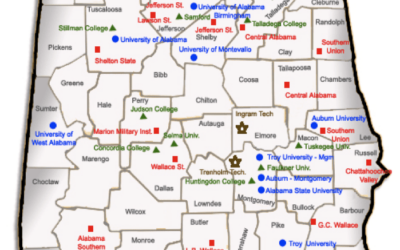

0 Comments